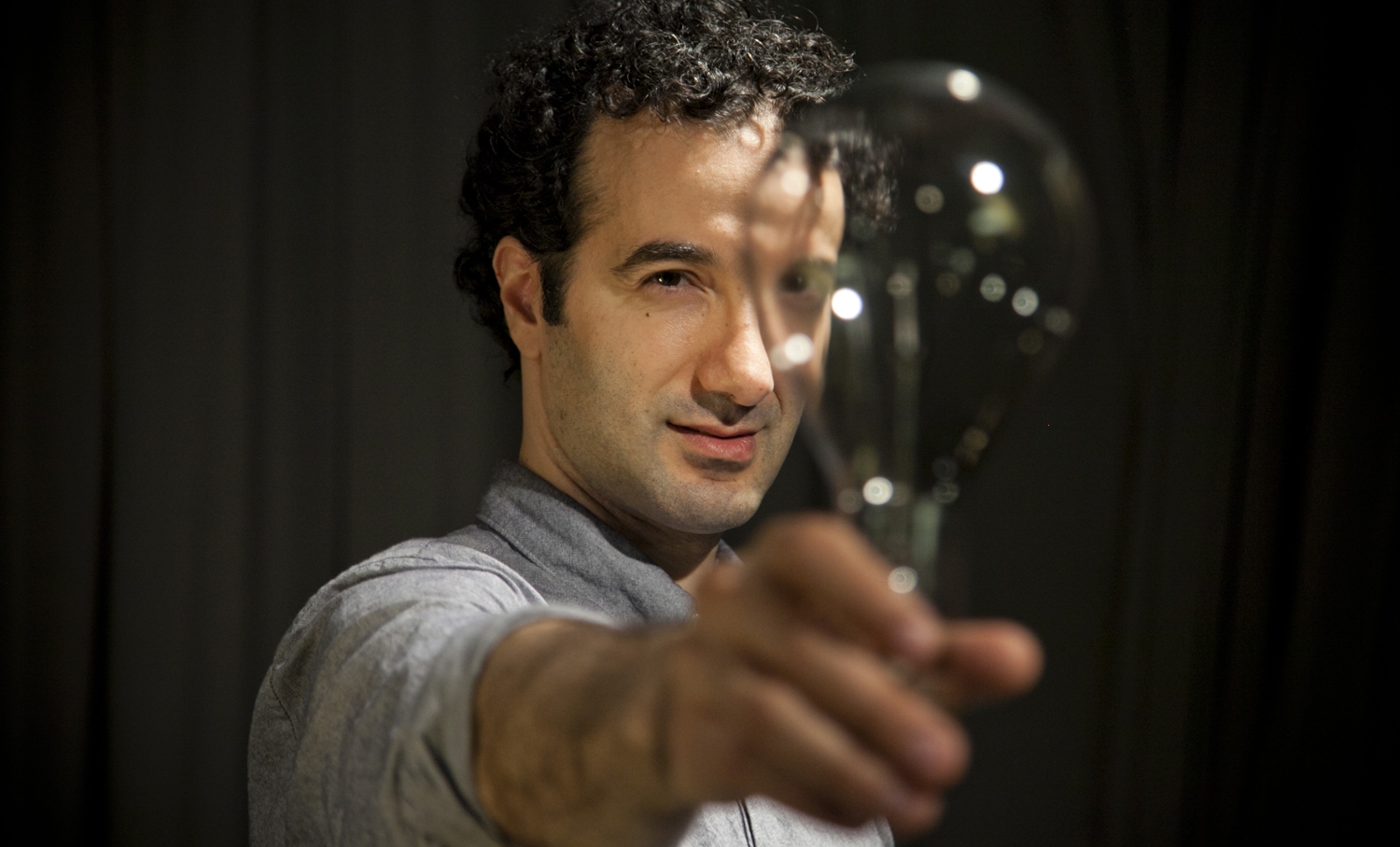The founder and co-host of acclaimed science and philosophy podcast Radiolab originally studied to be a film composer. His passion for music has never waned, and he relishes the intricate similarities that encompass his various loves.
“When you’re telling stories, there’s something very musical that’s deep down in the way that stories are told,” Abumrad says. “You think pitch, and your voice rises and falls. There’s rhythm; you syncopate when you want to surprise people with the rhythm. You get very quiet, you get very loud – all of these things are musical events.
“There’s also something for me really mysterious, continually, in the scoring process of the shows. That part of the process where we try and put music and sound into the stories is always such a weird and fun part, where you’re trying to find those noises that you didn’t think would be happy in the story, but yet they are. You’re always looking for those places where the sounds themselves supervise you.”
Be it organising the chaos of the ethereal in song or earthly in interview, Abumrad is a master of his many fields. In his first ever Australian appearance, Abumrad will be discussing both the power of podcast as part of the Wheeler Centre’s Invasion Of The Pod People series with Andrew Denton and the majesty of Richard Wagner’s phenomenal Ring Cycle with Heath Lees and Casey Bennetto on Ring True: Music, Identity & Obsession.
Abumrad is drawn to the sheer theatrical complexity of Wagner’s work that extends far beyond the logical conclusion to his craft. Though a controversial personality — “I say this about him very well keeping in mind that he was a complete shithead,” he says wryly — there’s no denying the beauty and power of Wagner’s music.
“It’s almost like the orchestra itself is a collective unconscious of the world of these characters,” Abumrad says. “If all of their thoughts could come together above their heads and form an omniscient cloud, that would be the music. Maybe a better metaphor is that the music is the ocean upon which they sail, and they’re a tiny little boat, and the music is this massive ocean underneath them, and it knows everything. What will happen in his orchestra oftentimes [is that] some character will be singing a happy song, or something idyllic would be happening onstage, but the orchestra is already bubbling with some knowledge of dread.
“The light motif of this character is changing and it’s shifting, becoming minor. You don’t really notice it, but there’s some weird subconscious thing that’s tickling you there, saying, ‘All is not well, something’s about to happen.’ “
His hard work and enthusiasm for discovery has also resulted in one of the most popular podcasts in the world: Radiolab. Together with the equally brilliant Robert Krulwich, Abumrad explores the complex and the fascinating, presenting grand topics in a digestible – but never oversimplified – format. Though they may come from different worlds, with Krulwich loving science and Abumrad feeling more at home in the political, they both savour that same fundamental thrill of extracting meaning and beauty from the world around them.
“I want a story that’s going to make me question everything,” Abumrad says. “I want stories where there are people doing things, getting their coat on, walking out the door, and they just collide into some idea or reality that they didn’t anticipate. The effect that it has on me is that it takes my perspective and shakes it. I want to hear stories of people who are experiencing that kind of transformation, where something they thought – some deeply held idea they had about who they are and what the world is – is changed in the story, and I’m forced to have to change along with them.
“Increasingly for me, Radiolab is a way to look at the world more than it is a series of topics,” Abumrad continues. “I’m gathering interests all the time, but the engine is always the same – something about curiosity. Just trying figure out how to make meaning out of things, and how the world works.”
By Jacob Colliver







